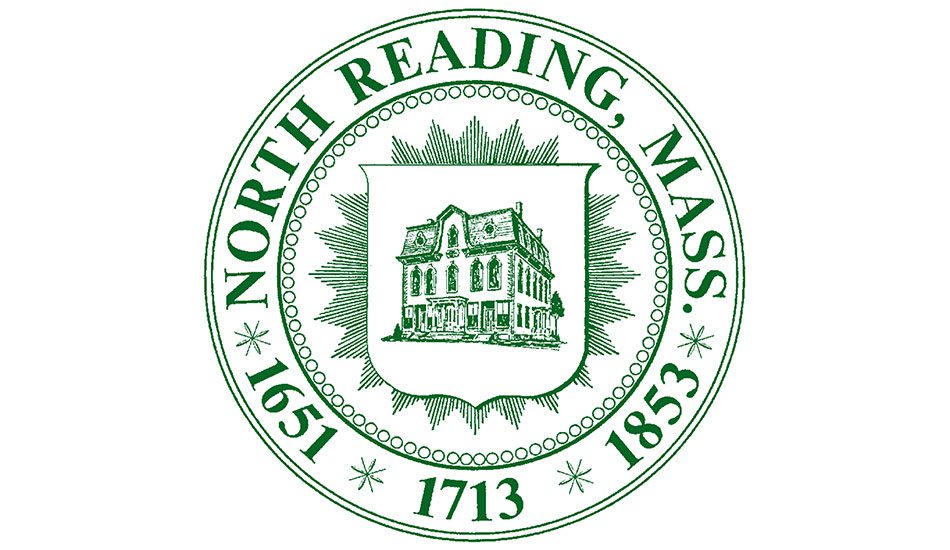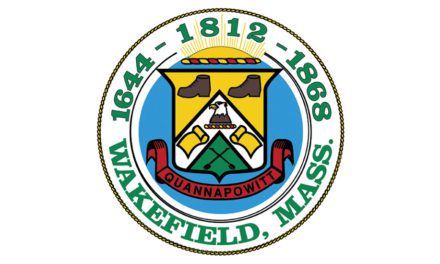By MAUREEN DOHERTY
NORTH READING — The Select Board on Monday night voted to approve a recommended Fiscal Year 2024 operating budget of $87,342,788 to the voters at the annual Town Meeting scheduled for Monday, June 12.
This figure, as recommended by Town Administrator Michael Gilleberto, includes the School District sum of $37,319,595 as previously voted by the School Committee.
It also includes an FY24 operating budget to fund the municipal side of the ledger of $19,291,970 plus the FY24 fixed costs for the town totaling $23,660,145, which is comprised of the Northeast Metro Tech assessment ($943,333), employee benefits ($14,605,110), general insurance ($541,946) and debt ($7,569,756).
Lastly, the $87.3M sum includes FY24 Enterprise Funds totaling $7,070,788.
The vote was 4-0 with one member absent. Voting were Vice Chair Vincenzo Stuto along with Select Board members Kate Manupelli, Stephen O’Leary and Rich Wallner. Liane Gonzalez, who is the new chairwoman following the board’s reorganization meeting held May 3, the day after the annual Town Election, was unable to attend the May 8 meeting. Stuto, who was re-elected to his second three-year term last week following a challenge by Jack Carroll, retained his role as vice chairman, and Wallner remains the board’s clerk following the other reorganization votes taken by the board May 3.
These budget recommendations follow several months of meetings reviewing with department heads their budget requests along with reviews and discussions before the Finance Committee, the town’s Finance Department staff and the members of the Financial Planning Team comprised of town and school officials and administrators.
According to Gilleberto, from the available revenues, fixed costs in FY24 represent about 30% of the town’s budget, which leaves 45% to fund the operating costs for the schools and about 24% to fund municipal operating expenses. After the fixed costs are removed, the remaining available revenues are split by just over 65% for the schools and just over 34% for municipal expenses.
In funding the municipal needs, additional key expenditures include town-wide health insurance costs of $8,299,556; a County retirement assessment of $5,210,793 and Medicare costs of $675,827.
Gilleberto also reviewed the town’s cash reserves with the board, which totals $14,978,557. The town currently has $5,627,125 in certified Free Cash; $4,078,073 in its Stabilization Fund; $2,948,022 in the Water Infrastructure Stabilization Fund; $1,434,811 in the Capital Improvement Stabilization Fund; $740,588 in Cell Tower funds; $148,399 in the Solid Waste Stabilization Fund; and $1,539 in Water Retained Earnings.
In creating the FY24 budget, Gilleberto stated their goals have included continuing the budget collaboration between town and school leaders through the Financial Planning Team; maintaining service levels to the extent possible; where necessary, modifying or adding services to respond to the community’s needs; minimizing the impact of the cost of health insurance upon the operating budget; and incorporating multiple revenue streams to submit a balanced budget to Town Meeting.
The recommended municipal budget reflects reductions of approximately $1.7M from the various budget requests by the town’s department heads to fully fund their needs.
Among the many highlights of the proposed FY24 municipal budget, Gilleberto said it maintains public services and a grant writer position; it restores an IT Director position (the prior director left a couple years ago and a replacement had not been found); it provides a mapping system for the town’s Assessing Department; it funds the replacement of two marked police cruisers; it adds a position of Fire Department Fire Prevention/Day Officer; it adds a Library Program Coordinator position; and it funds additional maintenance of municipal buildings.
The T.A. also highlighted some of the unfunded requests made by various town departments in the upcoming fiscal year. These include not funding a request for four additional firefighters (one per shift); level funding the seasonal building inspector’s hours; not providing increased funding for maintenance of Martin’s Pond; not funding requests for an additional van driver for Elder Services, an additional laborer for Parks and Recreation or additional Youth Services expenses; and it level funds vehicle fuel expenses.
Also in FY24, the town budget would use Free Cash to fund the snow and ice deficit, retirement obligations for town and school career ending expenses, and Capital Improvement Plan funding.
Looking ahead to FY25, Gilleberto noted that the town’s ability to carry services provided in the current FY23 budget into the FY24 budget was “significantly strained; therefore, “arriving at a balanced budget for FY24 was a difficult process town-wide” for both the schools and the municipal side of government. He added that the town is looking at continuing its “significant reliance on one-time funds for one-time costs that would ideally be funded from raise and appropriate” sources, which are taxes, state aid and local receipts.





